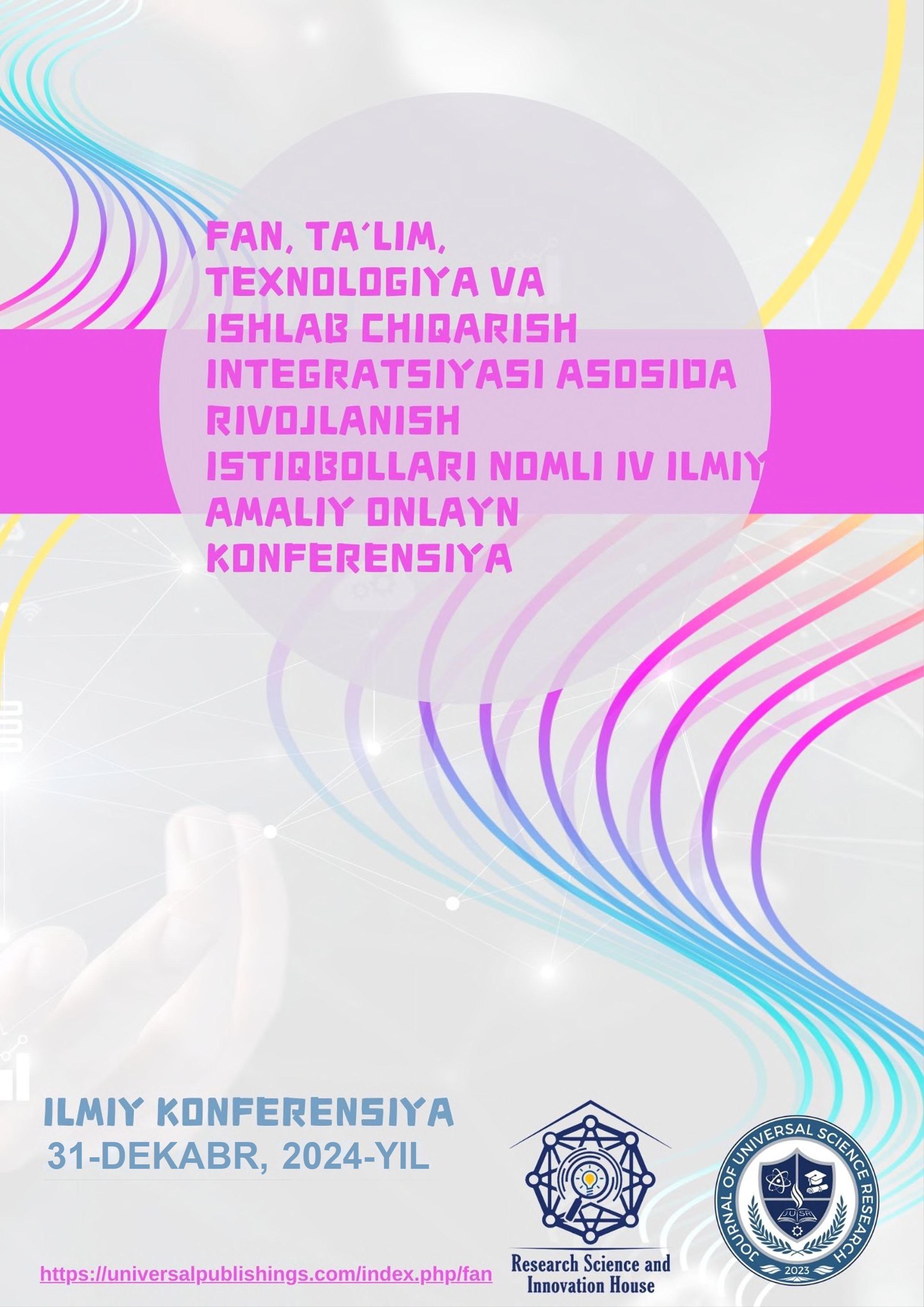LEXICAL CHOICES AND THEIR EMOTIONAL IMPACT (IN THE EXAMPLE OF THE COLOR PURPLE BY ALICE WALKER)
Keywords:
Lexical choices, emotional impact, vernacular language, symbolism, authenticity, empowerment, resilience, transformation, identity, trauma, healing, spiritual connection, emotional intensity, Alice Walker, The Color Purple.Abstract
Alice Walker’s The Color Purple exemplifies the transformative
role of language in literature and life. This article explores how Walker's deliberate
lexical choices evoke emotional depth and enhance the narrative's authenticity. Key
aspects include the use of vernacular language to reflect Celie’s voice and context,
emotionally charged word choices to capture her struggles and growth, and symbolic
lexicon to underscore the novel’s themes of beauty, spirituality, and resilience. The
shift in language from fragmented and oppressive to confident and joyful mirrors
Celie’s journey of self-discovery and empowerment. Walker’s use of silence and
unspoken words adds another layer of emotional intensity, highlighting the impact of
trauma and healing. Through these linguistic techniques, The Color Purple transcends
storytelling, offering a profound meditation on survival, transformation, and the
enduring power of language to connect and inspire.
References
1. Walker, Alice. The Color Purple. New York: Harcourt Brace Jovanovich, 1982.
2. Bloom, Harold, ed. Alice Walker's The Color Purple. New York: Bloom's
Modern Critical Interpretations, 2008.
3. Gates, Henry Louis, Jr. The Signifying Monkey: A Theory of African-American
Literary Criticism. New York: Oxford University Press, 1988.
4. hooks, bell. Talking Back: Thinking Feminist, Thinking Black. Boston: South
End Press, 1989.
5. O’Brien, John. "Alice Walker: An Interview." Black American Literature
Forum, vol. 16, no. 2, 1982, pp. 81–85.
6. Tate, Claudia, ed. Black Women Writers at Work. New York: Continuum, 1983.
7. Lauret, Maria. Alice Walker. New York: Palgrave Macmillan, 2000.
8. Harris, Trudier. "On The Color Purple, Stereotypes, and Silence." Black
American Literature Forum, vol. 18, no. 4, 1984, pp. 155–161.
9. Washington, Mary Helen. "Alice Walker: 'A Writer Because of, Not in Spite of,
Her Ancestors.'" Ms. Magazine, vol. 13, 1983, pp. 74–75.
10.Yancy, George. "Alice Walker and the Art of Biography: Empowering the
Disempowered." Callaloo, vol. 31, no. 4, 2008, pp. 1163–1172.
11.Ma’ripov J. K. A BRIEF INFORMATION ABOUT TENSES //OʻZBEKISTON
RESPUBLIKASI OLIY VA OʻRTA. – С. 464.
12.Tolibovna A. K. et al. Features Of Anthropocentric Study Of Sacred Texts
//Open Access Repository. – 2022. – Т. 8. – №. 1. – С. 5-10.
13.Tolibovna A. K. et al. Functions of Allusion and Allusion as a Marker of
Intertextuality and Precedence //European Multidisciplinary Journal of Modern
Science. – 2022. – Т. 6. – С. 485-487.
14.Ma’ripov J. KORPUS HAQIDA UMUMIY TUSHUNCHA
//Центральноазиатский журнал образования и инноваций. – 2023. – Т. 2. –
№. 5. – С. 175-178
15.Ma’ripov J. Antroposentrizm–tilshunoslikning zamonaviy yonalishi sifatida
//Инновационные исследования в современном мире: теория и практика. –
2022. – Т. 1. – №. 28. – С. 62-68.
16.Solnyshkina M. I. et al. IMPORTANCE OF SETTING GOALS. SMART
GOALS //Новости образования: исследование в XXI веке. – 2023. – Т. 1. –
№. 11. – С. 318-320.
17.LEARNER I. Jizzakh branch of the National University of Uzbekistan named
after Mirzo Ulugbek, The faculty of psychology, The teacher at the department
of Foreign languages.
18.Маърипов Д. Psychological value of the novels by agatha christie
//Информатика и инженерные технологии. – 2023. – Т. 1. – №. 2. – С. 630-
632.
19.Maripov J. MODERN METHODS OF TEACHING ENGLISH FOR B2
LEVEL STUDENTS: ENHANCING LANGUAGE PROFICIENCY AND
COMMUNICATION SKILLS //International Journal of scientific and Applied
Research. – 2024. – Т. 1. – №. 3. – С. 266-271.
20. MATNLARNI D. T. A. L. V. A. D., JIHATLARI T. Q. O. Z. X. O. S. Ma’ripov
Jalolkhan Kamoliddin ugli, Alimkulova Khulkar Tolibovna.«
//ОБРАЗОВАНИЕ И НАУКА В XXI ВЕКЕ. – №. 22



